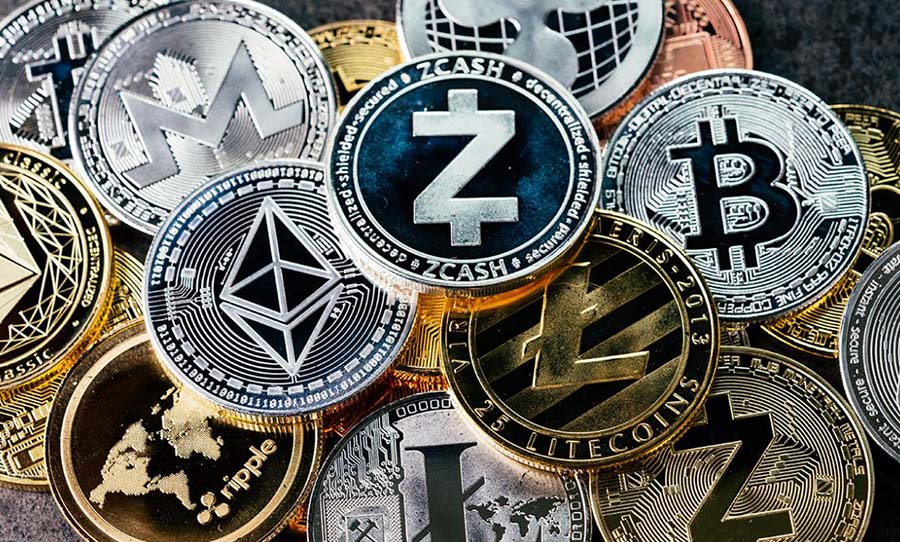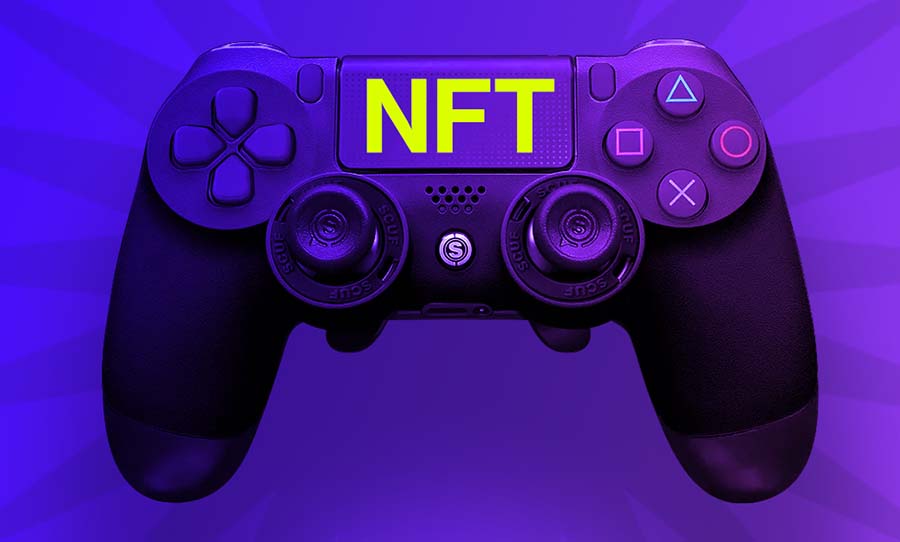We’ve had the ‘NFTs in games’ talk before, but I think it’s time we had it again.
More and more companies are deciding to dip their toes into non-fungible tokens (NFTs), drawn in by the financial potential of a growing trend. But are NFTs really that beneficial for the gaming industry?
Major game companies such as EA and Ubisoft have previously announced their decisions to integrate NFTs into games, only to meet wave upon wave of backlash from their players. Now it seems that a few other game companies have not heeded this warning, and have announced their intentions to do the same as well. So why exactly are gamers around the world rejecting the concept of NFTs?

What are NFTs?
NFTs, or non-fungible tokens, are unique, irreplaceable tokens stored on a blockchain, with Ethereum being the first and most widely used of them. They use a digital ledger to act as a form of ‘certification of validity’ or ‘proof of ownership’. NFTs can be anything – an image, a gif, music, even a Tweet. Yep, you read that right.
Owning an NFT of an asset, however, does not mean that you own the copyright or intellectual property rights of said asset. Essentially, they are like receipts. Extremely expensive receipts, in some cases. The things some people do to flex.
#nft are amazing collectibles and many many love collecting, they also very very high high risk investments, I don't see people acting as if they are VERY high risk and i hope if you trade or invest u understand HOW INSANELY early we are in this space, ala '95 internet stocks
— Gary Vaynerchuk (@garyvee) January 10, 2022
Why are so many people against NFTs?
Where do I begin. Ethereum, the main blockchain used to facilitate the exchange and sale of NFTs, is sustained by an extremely power-heavy system called ‘proof of work’. This system consumes massive amounts of energy and electricity in order to verify and validate transactions, which is definitely not helping the world’s carbon emissions.
Many cryptocurrency companies are aware of this, and are making attempts to transition to systems that use less energy to regulate transactions (one such system being ‘proof of stake’). However, you should bear in mind that no matter how environmentally friendly a cryptocurrency company claims it is, the fact that it is a cryptocurrency company alone means that it is inherently not environmentally friendly.
Another reason why many people (creators, in particular) are so vehemently against NFTs is the veritable treasure trove of tools it gives to asset thieves. There have been countless cases of artists having their work plagiarised and sold as NFTs without their consent. NFT trading is considered unregulated, so there is often not much the victims can do except take to social media and hope that it gains enough traction and media attention so that action can be taken against the perpetrator.
The worst part of all this, perhaps, is that some victims may never know that their art has been stolen. Art theft or reproduction without credit is already an existing problem in the artist community, so NFTs giving thieves a platform they can actively profit off has not earned them many brownie points from said community.
That said, there are artists who have made substantial amounts of money from NFTs, specifically during a time when many of their main income streams (live touring, gallery shows, and more) have been hamstrung by the pandemic. So it’s a grey area… but what isn’t?
Remember when Logan Paul dropped $600K on an NFT? It's now worth $4,000. That's a loss of more than 99%. 🤣 pic.twitter.com/NTDUm9RUM8
— Coffeezilla (@coffeebreak_YT) November 5, 2021
NFTs in games
What makes a game good? The level design, the game environment, the art style, the core gameplay loop, the plot, the characters. You do not need to introduce NFTs in order to make your game fun or engaging, and that’s a simple truth.
There are already plenty of games out there catering to ‘collectors’ – or ‘achievers’, if you’re going by Bartle’s Taxonomy of Player Types (which is relevant, but far from a perfect system). Skins in games such as DOTA 2 are actually quite close to NFTs, they’re rare, in-game cosmetic items that can only be used by players that own them, and because of their rarity, they’re often inflated to lofty prices when resold in the game’s marketplace.
But importantly, they work independently of the game’s core systems, and remain totally optional to the majority of the playerbase. In other words, the amount of fun the average player has isn’t compromised by their existence.
Speaking of fun, Square Enix president Yosuke Matsuda recently stated:
“I realise that some people who “play to have fun” and who currently form the majority of players have voiced their reservations toward these new trends, and understandably so.”
“However, I believe that there will be a certain number of people whose motivation is to “play to contribute,” by which I mean to help make the game more exciting.”
Which begs the question – why are you making your players contribute to a game that you are supposed to be developing? Making a game ‘exciting’ is supposed to be the responsibility of the developers and the game company, not the players, is it not? Yes, many games have their own player-controlled economies, but they are not the focus of the games themselves.
It’s only a very small slice of the population who play games solely to make money – and often these methods are outlawed by developers due to the potential real-world losses it can incur on their fans.
Are games a job, or are jobs a game?
This brings me to my second point – there is a very real possibility of games turning solely into platforms of commerce. While most of the NFTs we’ve seen in games so far are optional or cosmetic items, I think many gamers can agree that cosmetic NFTs are not equivalent to the various existing in-game microtransactions offered by most games.
For one, that shiny new Legendary skin you just bought does not actually harm the environment that we live in. And hey, you can criticise gacha-based games all you want, but at least they offer a way to obtain purchasable items through gameplay alone – if you’re up for the grind.
Sure, NFTs may be considered a ‘fresh’ addition to the gaming industry and enable player-to-player transactions in order to make a game self-sustainable, but what of their impact on the environment? What of their impact on smaller (or even deceased) creators who will not be able to seek action when their assets get stolen and sold as NFTs?
There are far better ways to enable player-to-player transactions in a game, and NFTs are not one of them. The only things NFTs can bring to a gaming company is a sharp decline in reputation, as some publishers have already shown us.



